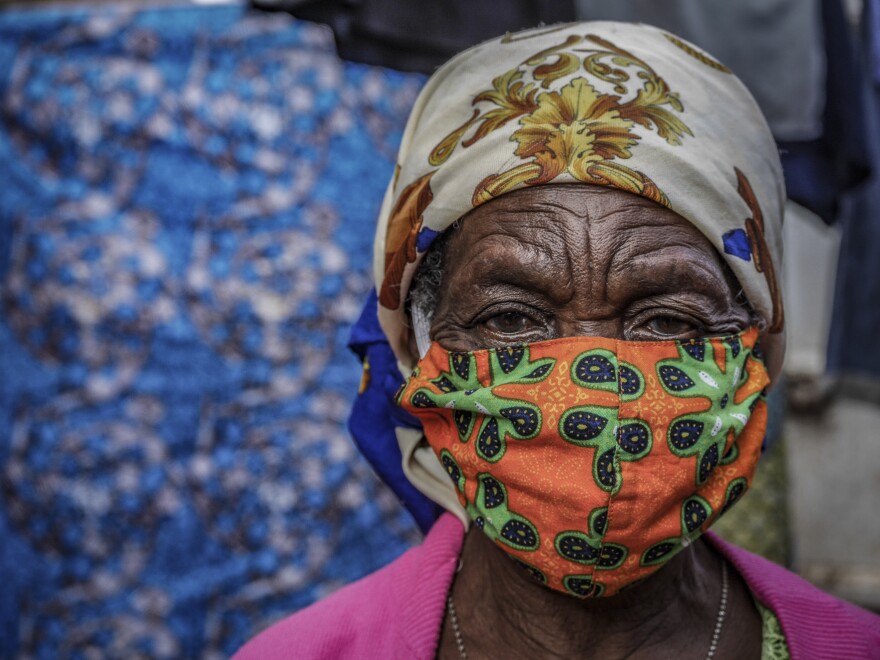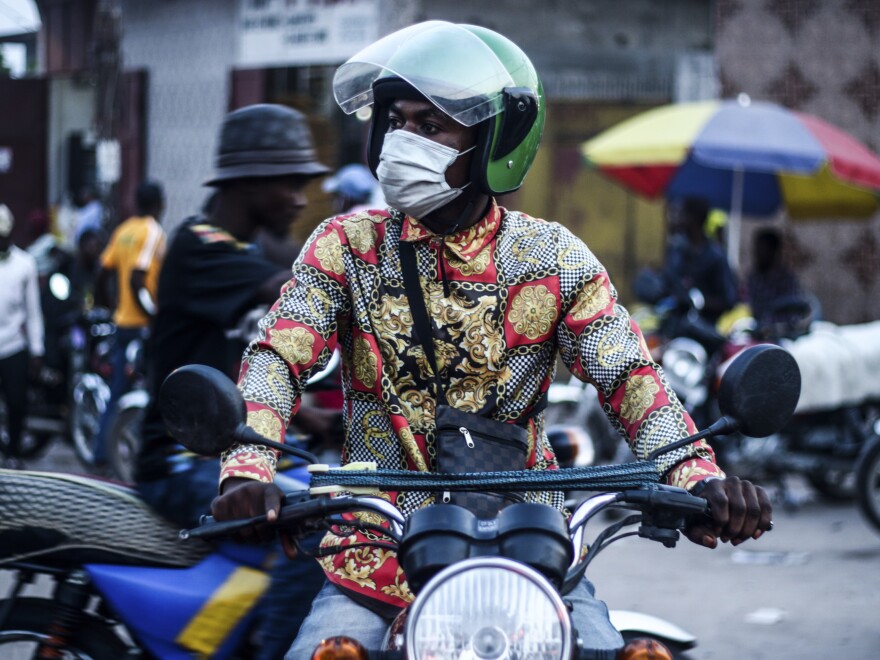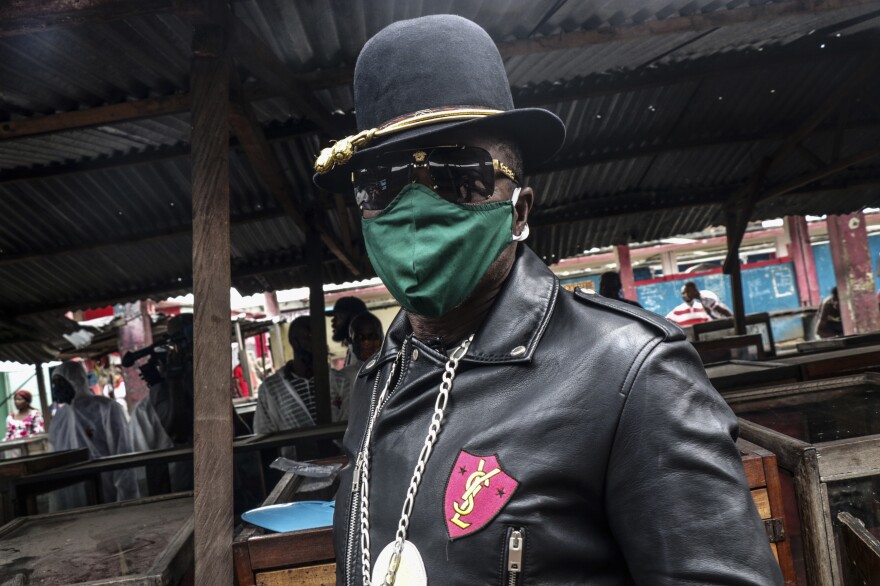Masks make a statement. About who you are — and your views of the pandemic.
That's true in countries from the United States to the Democratic Republic of the Congo.
The government of Congo requires all Congolese to wear masks when going out in public to prevent the spread of the novel coronavirus.

But many people resent this rule — and the fact that police can arrest you as if you've committed a crime and fine you 5,000 Congolese francs — the equivalent of $2.50 to $3 — for not obeying. That's a steep fine: The average per person income in the Congo is less than $2 a day.
The role of the police in mask enforcement makes people uneasy in a country with a history of police brutality.
What's more, some in Congo don't believe the novel coronavirus is a major threat. One reason is that the conflict-ridden country is dealing with other major health challenges. The annual count of malaria cases is over 800,000. There have been Ebola outbreaks in parts of the country, claiming over 2,000 lives since 2014. Since the start of 2019, nearly 7,000 have died of measles.

By contrast, the coronavirus case count was 5,283 as of Friday, June 19.
Then there are the conspiracy theorists who wonder if pandemic preparedness in Congo is part of a government plot to bring in money from international health agencies. Like many conspiracy theories, this one is vague and confusing and unproven.
Despite their doubts, people do wear masks. They may do so to protect others and to protect themselves from COVID-19. They also wear them as a form of political expression. They might wear a mask backward — or let it slip down around the neck. Technically they are obeying the law but in fact they are flouting it.


Or they might make a mask out of an absurd material — a banana leaf — to mock the authorities.
But there's another approach to masks in Congo. The country is home to a group of people who call themselves Sapeurs — members of the Societe des Ambianceurs et des Personnes Elegantes (the Society of Tastemakers and Elegant People). They are often described as "Congolese dandies," decked out with fancy hats, fine suits and canes.
Papa Wemba, a rumba musician who popularized the Sapeur culture in the late 1970s and early 1980s, reportedly said of their style: "White people invented the clothes, but we make an art of it."
And now the Sapeurs are donning fashionable masks to match their artful garments.

You can see the many ways people wear masks in Congo in the portraits by photographers Raissa Karama Rwizibuka, whose pictures were made in the city of Bukavu, and Justin Makangara, who photographed in the capital city of Kinshasha.
These images were made for Congo in Conversation, a collaborative digital group of Congolese photographers and journalists under the auspices of the Carmignac Photojournalism Award.
Copyright 2023 NPR. To see more, visit https://www.npr.org.




